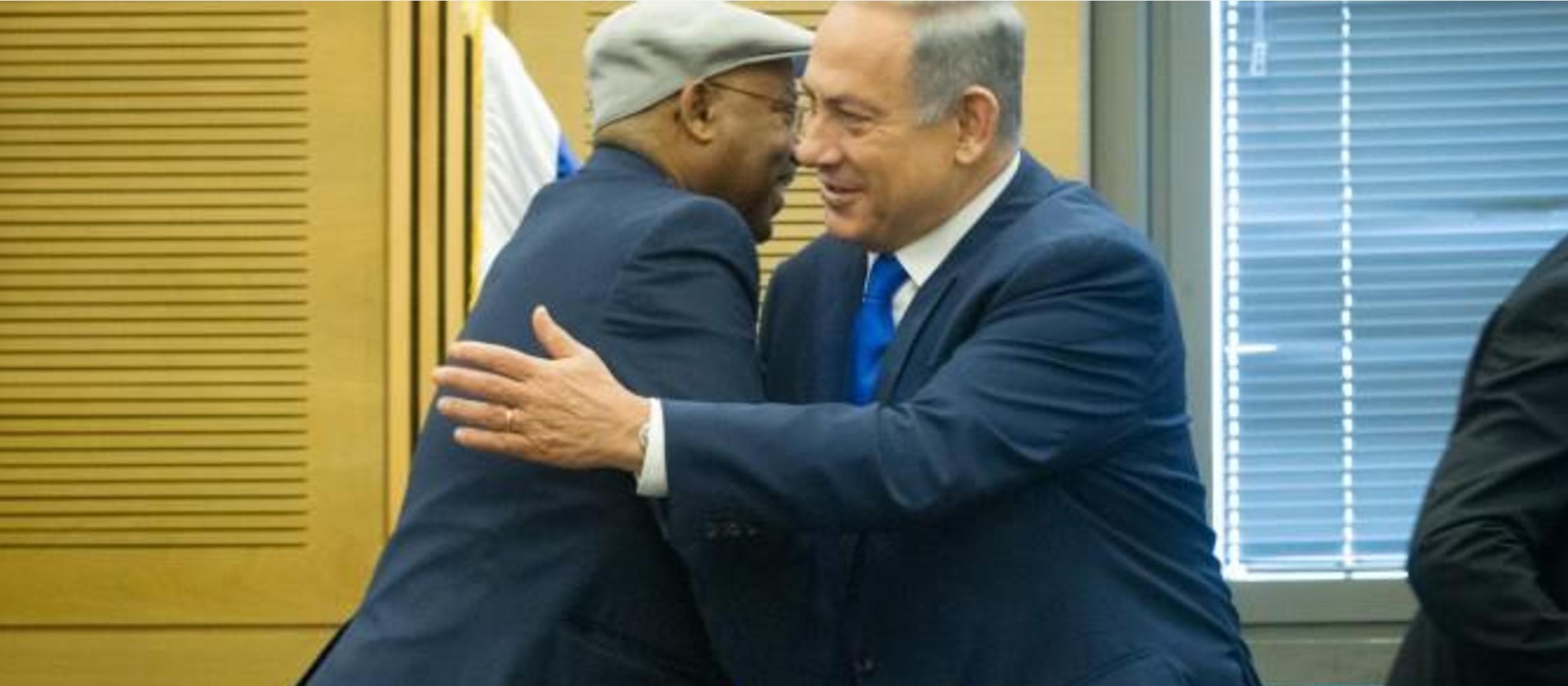The Tower
Israeli Prime Minister Benjamin Netanyahu announced the formation of a new Israel-Africa Knesset caucus and confirmed that he will be traveling to the continent this summer, The Jerusalem Post reported on Tuesday.
Netanyahu, who will be the first sitting Israeli prime minister to visit Africa since Yitzhak Shamir in 1987, is set to arrive in Uganda and Kenya around the 40th anniversary of Operation Entebbe, when Israeli commandos rescued over 100 hostages held by pro-Palestinian terrorists in Uganda’s Entebbe airport.
The announcement was made during a Knesset meeting that was attended by 13 African ambassadors, five honorary consuls, and a number of Israeli lawmakers.
“Israel is coming back to Africa; Africa is coming back to Israel,” Netanyahu told the gathered diplomats. “It’s happening in a big way. It’s happening now, but it should have happened a long time ago. It’s happening now because it’s so clear that this is good for Africa and it’s good for Israel. We face a multitude of challenges and opportunities.”
Netanyahu spoke of the deliberate “African strategy” pursued by his government, and emphasized the importance of “overcoming the dark forces of militant Islamic terrorism and seizing the opportunities of the future with technology and everything else we can bring… to bear.” He added that he would like to see “the closeness of our relationship reflected also in the voting pattern of the African Union.”
In addition to stressing the shared security interests between Israel and African nations, Netanyahu offered Israeli assistance “in every way – in agriculture, in health care, in water, in irrigation, in science, in technology, in investment, tourism, cyber.”
Knesset Speaker Yuli Edelstein also addressed the diplomats, observing that Israel sought to build relations with African nations since the 1960’s. “I believe that if we want to base relations between our countries on a solid platform, it is important to strengthen it on the level of parliaments,” he observed.
Caucus chairman MK Avraham Neguise (Likud), a native of Ethiopia, added that “The Jewish people and the people of Africa have a sense of sharing a common destiny, because both have suffered from discrimination and foreign rule…. This struggle can bring us together.” Neguise further emphasized that Israeli help in agriculture has benefited many in Africa, saying, “Israeli technologies have raised the quality of life and saved countless lives.”
Henri Etoundi Essomba, Cameroon’s ambassador to Israel, thanked Netanyahu for meeting with the diplomats and for “brainstorming how best we can confront the challenges the prime minister just mentioned together.” Essoma hailed Netanyahu’s emphasis on ties between Israel and Africa, adding, “We welcome this initiative and would like to be as instrumental as possible to strengthen and give opportunities to both sides, Israel and Africa.”
Augostino Njoroge, the Kenyan ambassador to Israel, said that President Uhuru Kenyatta considered his trip to Israel last week to be his best international trip, while South Sudan’s Ambassador Ruben Marial Benjamin expressed hope that Netanyahu would visit his nation, as such a trip could “unite the divided tribes and bring peace and an end to bloodshed.” Benjamin added, “The African attitude towards Israel has changed and the time has come to look at our shared interests. The people of South Sudan love Israel.”
Kenyan Foreign Minister Amina Mohamed said on a state visit to Israel last week that most African countries see Israel as “a very close friend,” but added that high-level trips, such Netanyahu’s planned visit, would “enhance” diplomatic ties even more.
Source: The Tower










